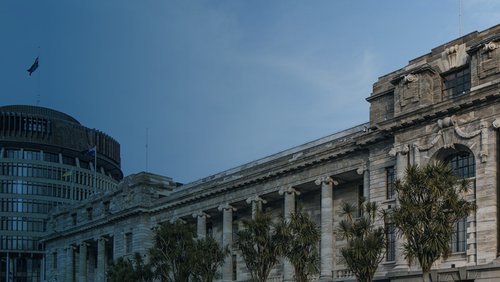14 May 2020
Following the Government's 2020 budget announcement, we've put together information that's particularly relevant to engineers.
Wage subsidy scheme extends and expands
As part of the $50 billion Covid-19 Response and Recovery Fund announced in the 2020 Budget, the Government has allocated another $3.2 billion to its wage subsidy scheme – and made pre-revenue start-ups eligible.
The scheme was due to wrap up on 30 June 2020. It’s now been extended for an additional 8 weeks, with tighter revenue-loss conditions.
Shovel-ready fund boosted but no winners announced
The budget allocates $3 billion for infrastructure projects, in addition to the $12 billion New Zealand Upgrade Programme announced earlier this year.
The Prime Minster said in her Budget speech that “our $3 billion fund in this Budget will be squarely focused on projects that are ready to create jobs, but also tackle issues like water infrastructure”.
Nearly 2000 projects have been put forward for funding, with announcements on winners and losers yet to come.
Infrastructure Minister Shane Jones says that to be chosen, projects would have to create jobs, begin within a year, and "provide Kiwis with confidence that our economic recovery is hitting the ground running". He promised close monitoring of implementation.
Crown Infrastructure Partners CEO Mark Binns has said that not all projects would be funded by the Budget allocation.
However, with more than $20 billion still available and unallocated for the Covid-19 recovery, that door remains ajar.
Rail an infrastructure winner
More than $1 billion has been allocated to rail in the Budget, including $400 million to replace aging Interislander ferries and port infrastructure.
“New ferries will provide a more resilient link between the North and South Islands,” Finance Minister Grant Robertson said in his Budget speech.
The Budget brings the total invested in rail by this Government to $4.6 billion.
Last week Engineering New Zealand, together with the Railway Technical Society of Australasia (RTSA), submitted on the draft New Zealand Rail Plan and the Government’s Policy Statement on Land Transport. Our submission acknowledged the role of rail in supporting a safer, more economic and sustainable multi-modal transport sector.
Our submission also discussed the need for long term rail investment planning and consistency of funding to provide confidence to industry to invest in growing a capable, competent and well-equipped workforce. The investment in rail, together with the Budget 2020 announcements on investment for vocational training and skills development initiatives, are positive steps towards this. The Budget also invests $246 million in the rail network and $421 million for new wagons and locomotives.
Proposed changes to the Land Transport (Rail) Legislation Bill would allow network investment to be channelled through the National Land Transport Fund (NLTF). KiwiRail's ability to access a further $148 million in Crown NLTF funding depends on that bill being passed and coming into force.
Support for trade training and apprenticeships
The Government has allocated $1.6 billion for trade and apprenticeship training, focused on industries with workforce shortages – notably building and construction.
The $1.6 billion will support:
- Targeted investment for free trades training in critical industries ($320m)
- Support for employers to retain and continue to train apprentices (up to $412m)
- Additional tertiary education enrolments ($334m)
- Industry leadership groups, including the proposed Workforce Development Councils and Regional Skills Leadership Groups ($276m)
- Māori Apprenticeships Fund ($50m)
- Increased volumes through Trades Academies ($32.3m)
- Group training schemes to support apprentices ($19.4m)
Funding for free trades training will be available from 1 July 2020. Further information on the other initiatives is expected shortly. We will keep you informed as more details are released.
Read more about the trade and apprenticeship training Budget 2020 announcements
Government to build more state houses
The Budget allocates $5 billion to build 8000 new houses over the next five years.
Housing Minister Megan Woods says the investment should send companies in the residential construction sector a strong signal about retaining staff.
Just before the Covid-19 crisis, the state house waiting list had reached a record 15,235.
The Government has previously promised to build 6400 new houses, which are now finished or under construction.
Kāinga Ora will borrow the estimated $5 billion to pay for the 8000 new houses, with the Budget also setting aside $570 million in rent support.







